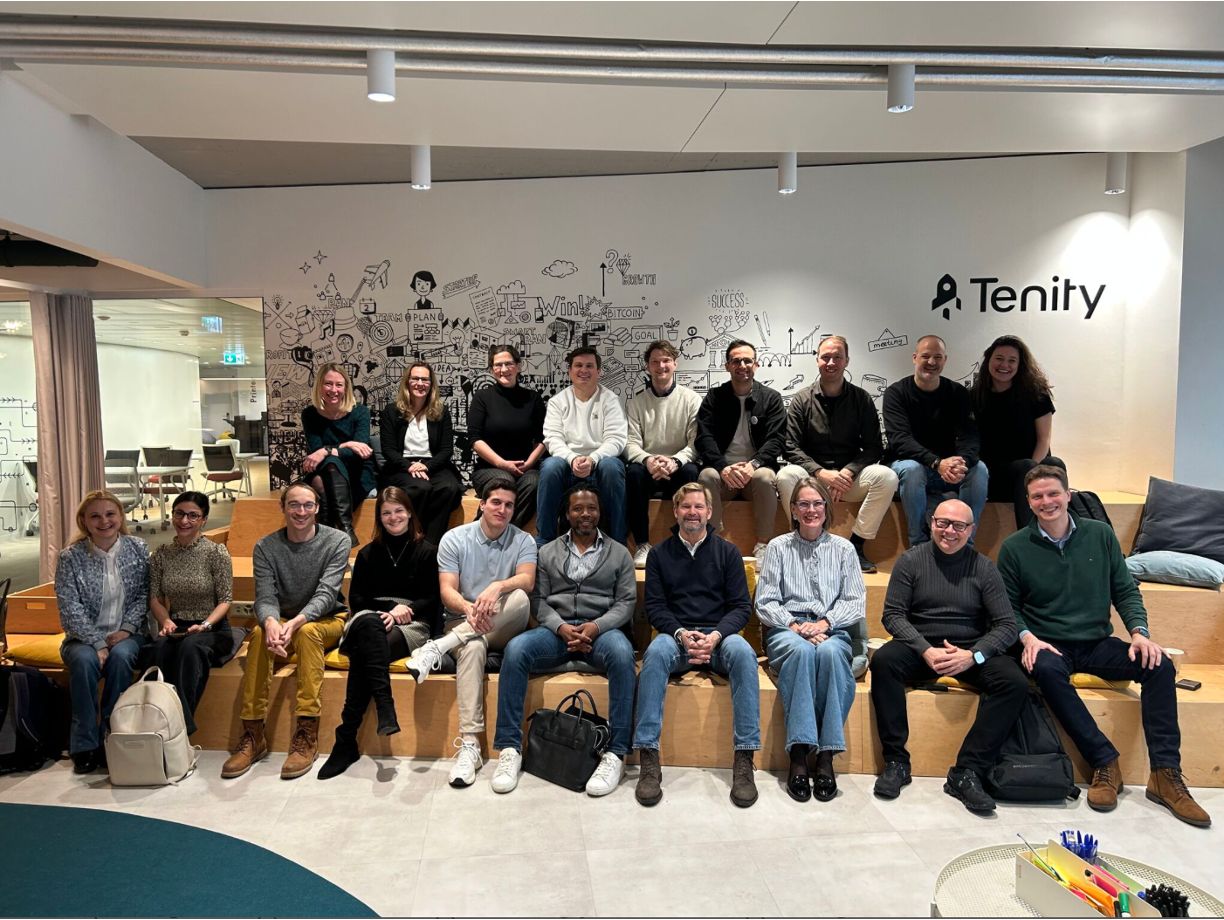When my mum was diagnosed with a deadly form of brain cancer called Glioblastoma, back in May 2019, our cancer journey underscored a harsh reality: genomics was still far from universally accessible for Brain Tumour patients in the UK.
We had to go private as it wasn’t yet available to us within the NHS, despite Whole genome sequencing (WGS) being offered to all adult brain tumour patients in England as part of the launch of NHS Genomic Medicine Service in 2018.
The NHS has certainly come a long way since then, with 3,270 cancer patients in England receiving WGS for the last full year that data is available (Oct 23 – Sep 24). And certainly integrating genomic tests into routine care is a major undertaking!
However, had she been diagnosed today, there would still be no guarantee she would receive WGS / sequencing for her tumour within routine care. A recent report from Tessa Jowell Brain Cancer Mission estimated “that fewer than 5% of eligible adult patients with a brain tumour are accessing certain [genomic] tests”.
CRUK recently released their policy on genomics for cancer research and care in the UK. It’s a great summary of the challenges facing the NHS in implementing genomics into routine clinical care and research, and their subsequent recommendations for change. I’ve pulled out the key messages from the report with my two cents from my lived experience (and read more here about the promise of personalised medicine):
A Postcode Lottery, Not Built For Cancer
The UK’s genomic infrastructure was built for research and rare disease testing. It wasn’t designed for the everyday demands of diagnosing and treating cancer. Now that genomic testing is becoming a standard tool in cancer care, genomic services are “stretched beyond an effective working capacity”.
Imagine this: a patient in one part of the UK can get a cutting-edge Whole Genome Test test that pinpoints exactly what’s driving their cancer—and leads to a targeted treatment plan. But a patient just a few miles away? They might not even know that test exists. That’s the reality we’re dealing with — patchy, inconsistent access that’s creating a postcode lottery for cancer care.
The Waiting Game
Even if you’re lucky enough to get access to genomic testing, you might be in for a wait. And when you’re a cancer patient, every day feels like a lifetime (I know from personal experience!) Delayed results mean delayed treatment, and that can cause major knock on effects including missed opportunities to start alternative treatments or clinical trials, and confusing messaging.
In April 2023, the Guardian reported that the average turnaround time for non-urgent whole-genome sequencing at the South East Genomics regional hub was 12 months, and 314 days at the East Genomics service. The target time for these tests is 84 days.
Why the delays? It’s not just about technology—it’s about people. The UK doesn’t have enough trained professionals to keep up with demand. Scientists, pathologists, data analysts, bioinformaticians — we need more of them, and we need them fast. And it’s also todo with inconsistencies between regions and nations whereby there is no commonality of the service.
A Widening Gap
Another significant problem is the gap between routine care and research. Clinicians already note that the genomic reports produced can be challenging to interpret with the clinically relevant information hard to identify; complicating treatment decision making.
However, outside of clinical utility, genomics has so much potential to advance cancer treatments through improving patient stratification for clinical trials. But currently clinicians aren’t receiving the research-relevant genes that matter for enrollment into clinical trials and won’t necessarily even know what trials are available (this is a symptom of clinicians being so time poor, but also due to poorly curated trial registries). This means patients are missing out on potentially groundbreaking therapies.
Specifically for rare cancers, this is a significant issue as the patient sub-populations are already so small, there is a desperate need for more clinical trial enrollment, otherwise, this leads to fewer drug approvals in the long term, leading to poorer clinical outcomes.
It’s frustrating because the solution seems obvious. Update trial registries, making sure they include relevant genes and biomarkers. Make sure clinicians know about research opportunities. Make the report more user friendly lets take a leaf out of good product design practices – how would Apple design a report? And reduce red tape and bureaucracy get in the way of connecting patients with trials.
Money Talks (But Not Enough)
Then there’s the funding — or lack of it. Genomics isn’t cheap, but the benefits far outweigh the costs if you can get patients onto more personalised treatment pathways.
However, personalised treatment pathways are also expensive! And the way NICE appraises the cost of treatments tends to favour treatments that can benefit broader swathes of the population (again for rare cancers this is bad news). Their cost-effectiveness threshold for a quality-adjusted life year or QALYs is between £20,000 and £30,000. This means that NICE generally considers interventions that cost less than £20,000 per QALY to be “cost-effective”.
Stable, long-term investment in infrastructure, training, new therapies and technology is non-negotiable if we want to do better for patients. Yet, it feels like the system is always playing catch-up rather than getting ahead of the curve.
The Public Piece of the Puzzle
Let’s not forget about the people this is all for: the public. If we want genomic medicine to succeed, we need trust. That means being transparent about how genomic data is used, ensuring it’s stored securely, and having honest conversations about the benefits and risks.
So, What Needs to Change?
The good news is that these problems aren’t unsolvable. Here’s are some of the key areas CRUK identified for change:
- Standardised Testing Across the UK: No more postcode lottery. Every patient deserves the same opportunities for diagnosis and treatment.
- Integration of Research and Routine Care: Let’s make clinical trials part of the standard conversation in genomic testing.
- Workforce Investment: Train more experts, and make genomics an exciting career path—not one people leave for better pay elsewhere.
- Data That Works for Everyone: Unified, interoperable systems that allow researchers and clinicians to collaborate seamlessly.
- Faster Adoption of Precision Medicines: Patients shouldn’t have to wait years for access to life-changing treatments.
- Public Engagement: Build trust, and keep the public on our side.
Why It Matters
This isn’t just about science or systems — it’s about people. It’s about the cancer patient waiting anxiously for test results that could change their life. It’s about the family desperate for answers and hope.
The UK has the potential to lead the world in genomic medicine, but potential means nothing without action. It’s time to stop talking about what’s wrong and start doing what’s right.
Because when it comes to cancer care, we can’t afford to wait.
Download our cancer glossary now.
Cancer explained simply.
Skomer founded Gena after his mother passed away from Glioblastoma, a devastating brain cancer. As her caregiver and a cancer researcher, he witnessed the severe limitations in treating rare cancers.
Thus, Gena was born. Gena’s mission is to give cancer patients access to all available personalised treatment pathways. Informing better treatment decisions. Empowering cancer patients.
Skomer previously worked in the tech sector, responsible for building scaling teams. He completed his MSc at UCL’s School of Engineering in 2022, having written his dissertation on the applications of genomics within the health sector and beyond.



